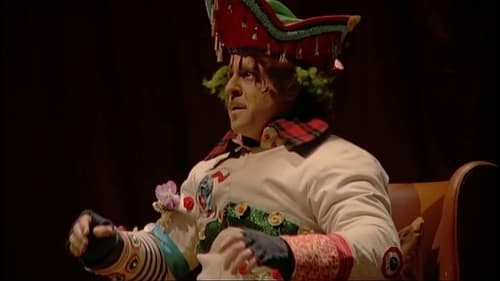
Ping
After twenty years of absence, Puccini’s Turandot was revived on the stage of the Teatro Real in a new production by American stage director Robert Wilson. One of the most important theatre and visual artist of our times, the director who gave life to Philip Glass’s Einstein of the Beach and who reinvented Debussy’s Pelléas et Mélisande hadn’t worked on a Puccini opera in twenty-five years, since his ground-breaking Madama Butterfly commissioned by the Paris Opera in 1993. This new encounter between his powerful visual universe and Puccini’s evocative music was bound to be an outstanding event. Carried out by a brilliant cast of singers, dominated by Irene Theorin as Turandot, Gregory Kunde as Calaf and Yolanda Auyanet as Liù, this magnificent production is conducted by the Teatro Real’s associate musical director Nicola Luisotti – and has been met with universal acclaim.

Macrobio
LA PIETRA DEL PARAGONE (The Touchstone) concerns the Count Asdrubale who is wealthy and therefore of great interest to many women – notably Aspasia, Fulvia, and Clarice. Only Clarice, however, loves him for something other than his riches. There are also male hangers-on: the corrupt journalist Macrobio, the poetaster Pacuvio, and Giocondo, who is Asdrubale's true friend, but who has his own eyes on Clarice. To test his friends and would-be fiancées, Asdrubale pretends that he has been bankrupted. Sure enough, only Clarice and Giocondo stand by him, and when his fortune is "miraculously" saved, the three have the last laugh on everyone else... or do they? This production is set in what looks like the early 1960s. But the real innovation is the use of blue screen technology: using tiny cameras and sets, along gigantic screens hanging over the stage, a kind of video mixing makes the singers appear to inhabit any number of fanciful settings and perform a myriad of improbable actions.

Marullo
In Rigoletto, the deformed figure of the hunchbacked jester at the Mantuan court acts as a foil to his cynical and powerful master, an unscrupulous philanderer contrasted with his cruel and unforgiving fool. Rigoletto encourages and welcomes the Duke's conquests, pitilessly mocking his victims until he discovers that the Duke has abducted the one person he genuinely loves, his own daughter. As a result, the character of the court jester is transformed into a tragic figure who, in spite of his evident immorality and malice, allows us to sense the devotion he feels for his daughter and his horror at being destroyed by the same despotic world as that which he himself has helped to create.


